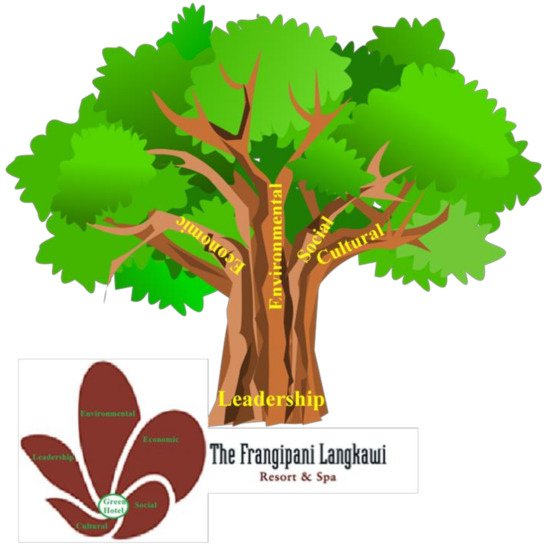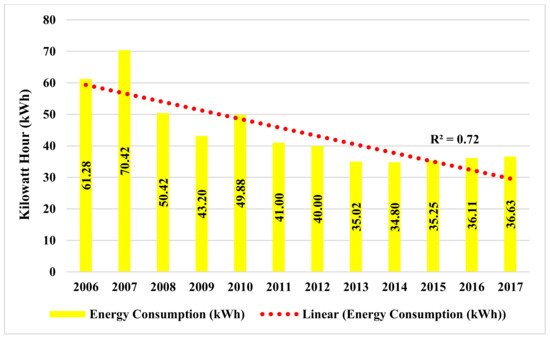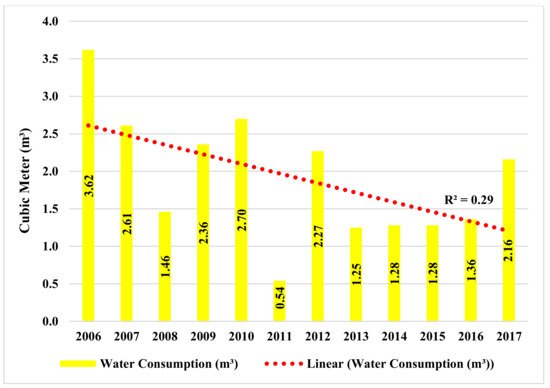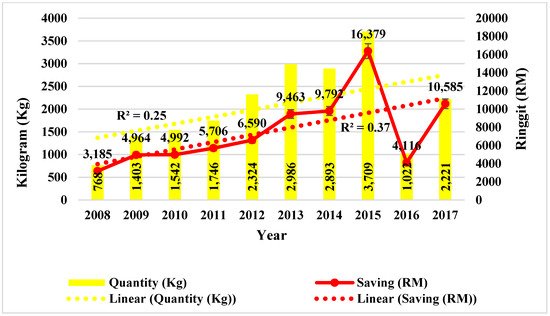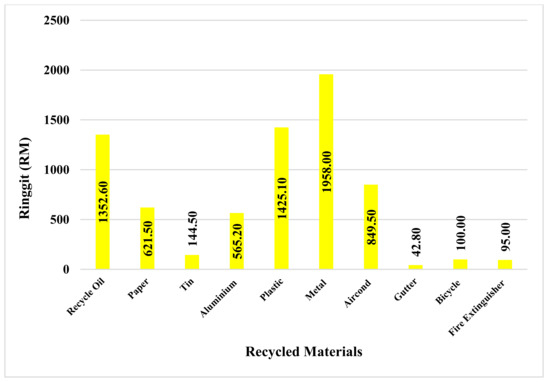Leadership roles of individuals and institutions, especially at the local level, are imperative for sustainable development. However, research on sustainability education has neglected to incorporate entrepreneurial skills into other relevant capabilities such as foresight, complex problem solving, and interdisciplinarity approaches, although possible convergences between sustainability education and entrepreneurship education have been addressed by researchers Therefore, several ways of leadership, such as transformative, behavior, and/or collective leadership, etc., especially in the hospitality industry, have been observed, and these leadership practices required appropriate integration of all aspects related to the hospitality industry to promote green tourism. However, inadequate integration between quantitative methods and community-engaged social sciences and humanities approaches, inadequate engagement with social movements and grassroots activism, as well as some important gaps in the theorization of the commodification of nature are the challenges of sustainability leadership in the hospitality industry. Moreover, barriers related to the novelty of Sustainable Product–Service Systems models require new attitudes to small companies, including changing mindsets from product ownership to use. Green practices in hotels are the important environmental management approaches of the hospitability industry. The green practices contribute to mitigating the impact of climate change via reducing carbon emission and fostering global sustainability in line with the COP (Conference of Parties) 21 Paris Agreement of the United Nation’s sustainable development goals (SDGs) in 2015.
1. Leadership Roles of Green Frangipani Hotel
The Frangipani Langkawi Resort and Spa is very proactive in terms of transformational leadership roles to promote green hotels via green practices. The hotel is practicing green and always looking to update the current green practices in addition to including new green practices. The hotel is following a modified circular economy that includes all the green practices. For instance, the Frangipani hotel started waste management from the kitchen following the zero-waste concept. All the food wastes were composted via the organic composting method for reuse as manure and gray and black water were treated in the constructed wetland for the reuse of the water. Okumus et al. [
84] also suggested adopting new food composting techniques using advanced yet increasingly accessible innovative chemical and biological approaches to reduce the impact of guest-related food waste in the hospitality industry of the USA. In the Kenyan hospitality industry, the constructed wetlands provide opportunities for wastewater reuse and recovery of resources, as well as improvements in local environmental conditions [
85]. Similarly, in Costa Rica, the performance of constructed wetlands in the hospitality industry showed consistent and efficient removal of organic matter and nutrients from the wastewater throughout different seasons and pollutant loads, verifying that such systems can be used in decentralized locations (e.g., tourist areas) in tropical climates [
86]. The organic manures from the composting were used in the vegetable and fruit gardens of Frangipani to supply organic food in the kitchen of the hotel, along with the saving of money from the purchase of outsider’s food. The System of Rice Intensification (SRI) method has also been applied to yield organic rice with less water and time. The larva of black soldier’s fly (BSF) that contain around 60% protein and 20% fat is also being reared to supply food to the organic chicken and duck farming. The BSF is also supplied to the third pond of the constructed wetland for fish cultivation. These chicken, duck, and fish make up the organic protein requirement of the hotel. Mertenat et al. [
87] reported that cities of low- and middle-income countries face severe challenges in managing the increasing amount of waste produced, especially the organic fraction. Black soldier fly (BSF) biowaste treatment is an attractive treatment option as it offers a solution for waste management while also providing a protein source to help alleviate the rising global demand for animal feed. Black soldier fly (BSF) bioconversion is an emerging technology that can turn food waste into high-protein fish feed through the use of BSF larvae [
88]. Therefore, these green practices are a cyclical, economically viable, and sustainable approach because of their inclusion of local community and their wellbeing.
The hotel is also proactive in sharing the information and data of these green practices to the visitors who are coming to the hotel as well as to the wider community of Asia and the Pacific via different events. Frangipani arranges ‘eco-walks’ voluntarily every Tuesday evening in the hotel to demonstrate the green practices to the guests of the hotel. Frangipani also arranges seminars, workshops, and short courses on organic farming for the ASEAN youths as well as to the relevant national and international stakeholders. Frangipani invites speakers from universities, research organizations, government and non-government organizations, and hospitability industries such as the Pacific and the Asia Tourism’s Association (PATA) to share their experiences about green hotels. Frangipani hotel authority has also shown its patience in adopting and promoting green practices and educating others about the green hotel business since 2006. The Frangipani hotel, being a member of the Malaysian Hotels Association (MHA), acts as a liaison or coordinator among the government, non-government, business and private sectors, and local communities, along with international agencies, to share the lessons learned about organic farming and composting and the circular economy, in line with the green hotel approaches.
The Frangipani hotel is also promoting scientific experiments based on the green practices at the hotel. For instance, the production of the black soldier flies, which is a future food for humans, will address sustainable development goal 2 (SDG 2), which is zero hunger. Examining the water quality of the constructed wetland to treat the gray and black water for reuse purposes also addresses SDG 6, related to water resources management. Organic composting contributes to reducing carbon emissions and addresses SDG 13 of climate action. Most importantly, the green practices of the Frangipani itself address SDG 8 of decent work and economic growth via sustainable tourism, etc.
The Frangipani hotel authority has very effective and cordial communication with its staff that is essential to promoting green practices. The hotel rewarded the staff in cash for the promotion of green practices, especially in terms of reducing energy and water consumption along with reducing organic waste with innovative ideas. This incentive to the staff is very transparent via the account division of the hotel because the incentives are visible on the board openly. The hotel authority also arranges training on green hotels for the staff both inside and outside of the country to enhance their skill in green practices. However, a multidisciplinary and multistakeholders’ platform is required for Frangipani to promote the leadership roles in economic, environmental, social, and cultural sectors via effectively updating the green practices (Figure 5).
Figure 5. Pillars of Frangipani Resort and Spa to promote a sustainable green hotel.
2. Environmental Sustainability
Human civilization has significantly changed the food cycle through the growing use of chemical fertilizers, irrigation needs, energy use, and greenhouse gases emissions. It also reduces the resilience of soil to climate change. Therefore, these anthropogenic activities, including the organic waste incinerated or landfilled, have an important climate impact on local and global environments [
89]. Graywater reuse is an attractive green approach for the sustainable management of water in the current water scarcity circumstances [
90]. Solid waste and wastewater management have been concerns in the closed system of Langkawi Island for a long time, and they require special attention to reduce the water and soil pollution for the sustainable development of the island [
29,
91,
92,
93]. The constructed wetland at the green hotel to reuse graywater is a low-cost and environmentally friendly technology [
83].
Higher energy consumption was recorded in 2007 (70.42 kWh) and 2010 (49.88 kWh) due to the construction of new rooms, swimming pool, and gym, respectively (Figure 6). The average yearly energy consumption per room was steadily decreasing (R2 = 0.72) from 2006 to 2017. It was also found that Frangipani had reduced about 46% of total energy consumption in 2017 compared to 2006.
Figure 6. Average per room yearly energy consumption (kWh) from 2006 to 2017 at Frangipani Hotel, Malaysia.
The Frangipani resort has 125 poly tanks, each able to harvest up to 4000 L of rainwater. Therefore, the total rainwater harvesting capacity is 500,000 L. Water is collected during the rainy days to be used in requirement. The rainwater is collected from the rain gutter, and it goes through the first poly tanks. Then, through a small filtration system connected to a second tank, the water is ready for use. Uses of the rainwater include cleaning of the public pathways, landscapes and vegetable gardens, irrigation purposes, as well as flushing the toilets. The 1.5 and 2 hos power air conditioning unit are also being used in the resort. A total of 20 L of old paint and 45 L of chlorine containers have also been reused and placed under each air condition compressor behind the guests’ rooms in order to collect condensation from the compressor. The usage of air condition for 12 h produces about 10 L of air condition compressor water. This water is then used for irrigating purposes of its surrounding areas. This is a more efficient method of watering plants as it minimizes the need to use paid, treated water.
Average yearly water consumption per room is decreasing (R2 = 0.29) from 2006 to 2017 (Figure 7). Water consumptions were higher in 2009 (2.36 m3), 2010 (2.70 m3), 2012 (2.27 m3), and 2014 (1.28 m3) due to the construction of new rooms and landscaping. Moreover, in 2014 a higher number of staff started to stay in staff quarters compared to the previous year. On the other hand, the higher water consumption in 2017 (2.16 m3) was due to the installation of a new laundry machine. It was informed that the total water consumption at Frangipani reduced by about 34% in 2017 compared to the water consumption in 2006.
Figure 7. Average per room yearly water consumption (m3) from 2006 to 2017 at Frangipani Hotel, Malaysia.
3. Economic Sustainability
A study on the environmental performance of hotels in Taiwan reported that better environmental performance influences the brand value of the hotel [
94]. As climate change can have a great impact on human health, it will require hoteliers to redesign entire Environmental Management Systems with the specific goal of a sustainable quality of life rather than unlimited material growth [
94,
95,
96]. The human economy can break the circularity of the natural economy following organic farming and organic waste management [
89].
Frangipani has an annual saving target of about 10% in terms of reducing food purchases from outside because guest’s perception towards organic farming is more positive than towards genetically modified organisms [
97]. Therefore, several vegetables, such as Papaya (
Carica papaya), Spinach (
Spinacia oleracea), etc., and fruits such as Banana (
Musa spp), Jackfruit (
Artocarpus heterophylla), etc., are being produced following the organic farming around the Frangipani resort. Thus, on average, about 2061.42 ± 937.57 kg of vegetables and fruits were produced per year from 2008 to 2017, and these vegetables and fruits production has saved about an average of 7577.21 ± 4003.29 RM per year during the same period (
Figure 8). The organic vegetable and fruit production (R
2 = 0.25), as well as the savings (R
2 = 0.37) from the food production at the Frangipani, were increasing during 2008 to 2017; however, the reduced production in 2016 was due to erratic rainfall. Frangipani Langkawi Resort and Spa has a very good green practice of recycling materials. In 2017, the hotel saved about 7154.2 ± 670.41 RM from different types of recycled materials (
Figure 9). Following the zero-waste concept, the hotel saved the following maximum amounts of recycled material (RM): recycled metal use, 1985.00 ± 97.90 RM; plastic use, 1425.10 ± 71.26 RM; recycled oil, 1352.60 ± 67.63 RM.
Figure 8. Saving from food production at the garden of Frangipani from 2008 to 2017.
Figure 9. Savings (RM) from recycled materials at Frangipani Hotel, Malaysia, in 2017.
4. Social Sustainability
A longitudinal study of 87 organizations in the Spanish hospitality industry reported that environmental knowledge has a positive effect on business performance in incorporating the global interest of green initiatives [
98]. In the case of Frangipani, the hotel has employed staff from the local community as a means of sustainability and corporate social responsibility. This initiative of hiring local staff can significantly contribute to the socio-economic development of the local community [
99]. These staff are also trained and educated on green hotel practices in order to promote sustainable tourism.
5. Cultural Sustainability
The Frangipani Langkawi Resort and Spa also ensures cultural sustainability through adopting local healthy food habits while promoting the green hotel business. The hotel also follows the zero-waste concept in line with the local people’s aspiration of cleanliness and going green. Local practice and cultural values can promote good environmental management practices within the local communities [
100]. Although green practices should be the core of green hotel services via more actions, demonstrations, and evidence, guests should not be overloaded with signages to reiterate that the facility is green. It should be the guest’s choice to be going green in line with the hotels’ green practices [
94]. It also facilitates the hotel authority to introduce new green practices in relation to the customer’s choice of green practices. Hence, the hotel authority can play an important role in bringing the local green culture into practice via the appropriate training of the local staff.
This entry is adapted from the peer-reviewed paper 10.3390/su131810260
